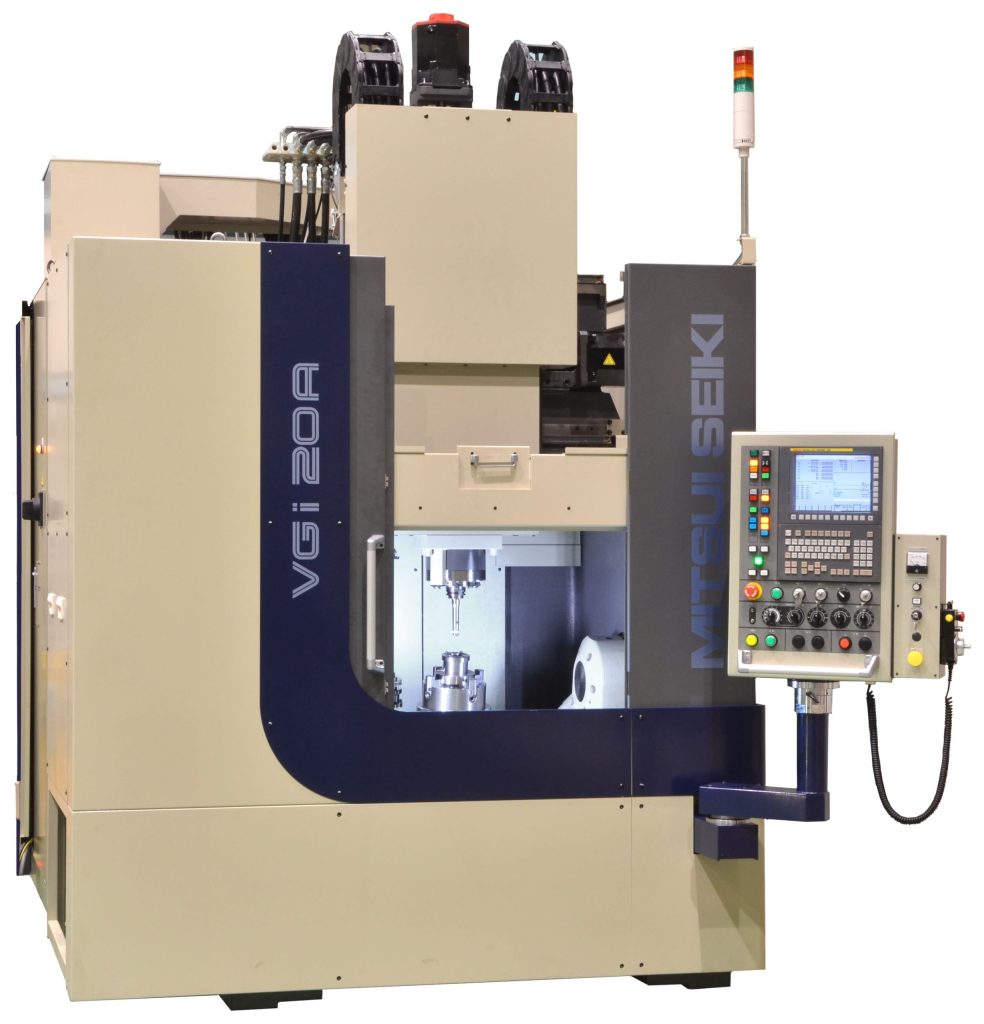VGi20A Ball Screw Nut Grinding Multitasking Machine
VGi20A Ball Screw Nut Grinding Multitasking Machine
With five axes of motion and storage for 40 tools, the machine can grind thread grooves and also machine the nut circumference, end surface, key grooves, and return tube holes in a single setup. In addition to producing large savings in manufacturing time, elimination of setup changeovers also assures exact phase alignment of thread grooves and return tube holes. A standard touch probe enables automatic pre-processing phase alignment of the thread groove and wheel.n

Mitsui Seiki's VGi20A Ball Screw Nut Grinding Multitasking Machine performs grinding and machining in one chucking, slashing nut processing time by two thirds. With five axes of motion and storage for 40 tools, the machine can grind thread grooves and also machine the nut circumference, end surface, key grooves, and return tube holes in a single setup. In addition to producing large savings in manufacturing time, elimination of setup changeovers also assures exact phase alignment of thread grooves and return tube holes. A standard touch probe enables automatic pre-processing phase alignment of the thread groove and wheel.
The machine produces threads via simultaneous interpolation of the C-, Y-, and Z-axes.
Users can generate optimal grinding programs automatically by entering data on the grinding screen of the machine's FANUC 31i-B5 control. Canned measurement cycles are available for setup. A rotating dresser shapes wheels for grinding thread profiles, and a single-point dresser prepares wheels for grinding nut circumferences and end surfaces. An optional three-dimensionally-designed automatic coolant nozzle changer provides coolant to an optimal point based on the profile of the workpiece, grinding wheel, and quill.
X-, Y-, and Z-axis strokes of the VGi20A are 550mm, 600mm and 500mm respectively. A-axis trunnion movement ranges from +15˚ to -105˚, and C-axis rotation is 360˚. Maximum workpiece diameter is 250mm, height 300mm, and weight 120 kg. The machine spindle is capable of speeds from 15 rpm to 30,000 rpm and is fitted with an HSK-A63 taper. Tools up to 250mm in length and 90mm in diameter can be accommodated. Machine footprint is approximately 3200mm by 3000mm.
Bill Malanche, Mitsui Seiki USA chief operating officer, said, "By combining grinding, multitask machining, and automation strategies, the VGi20A represents an integrated ball screw nut processing center that minimizes production time while simultaneously maximizing accuracy and repeatability."





